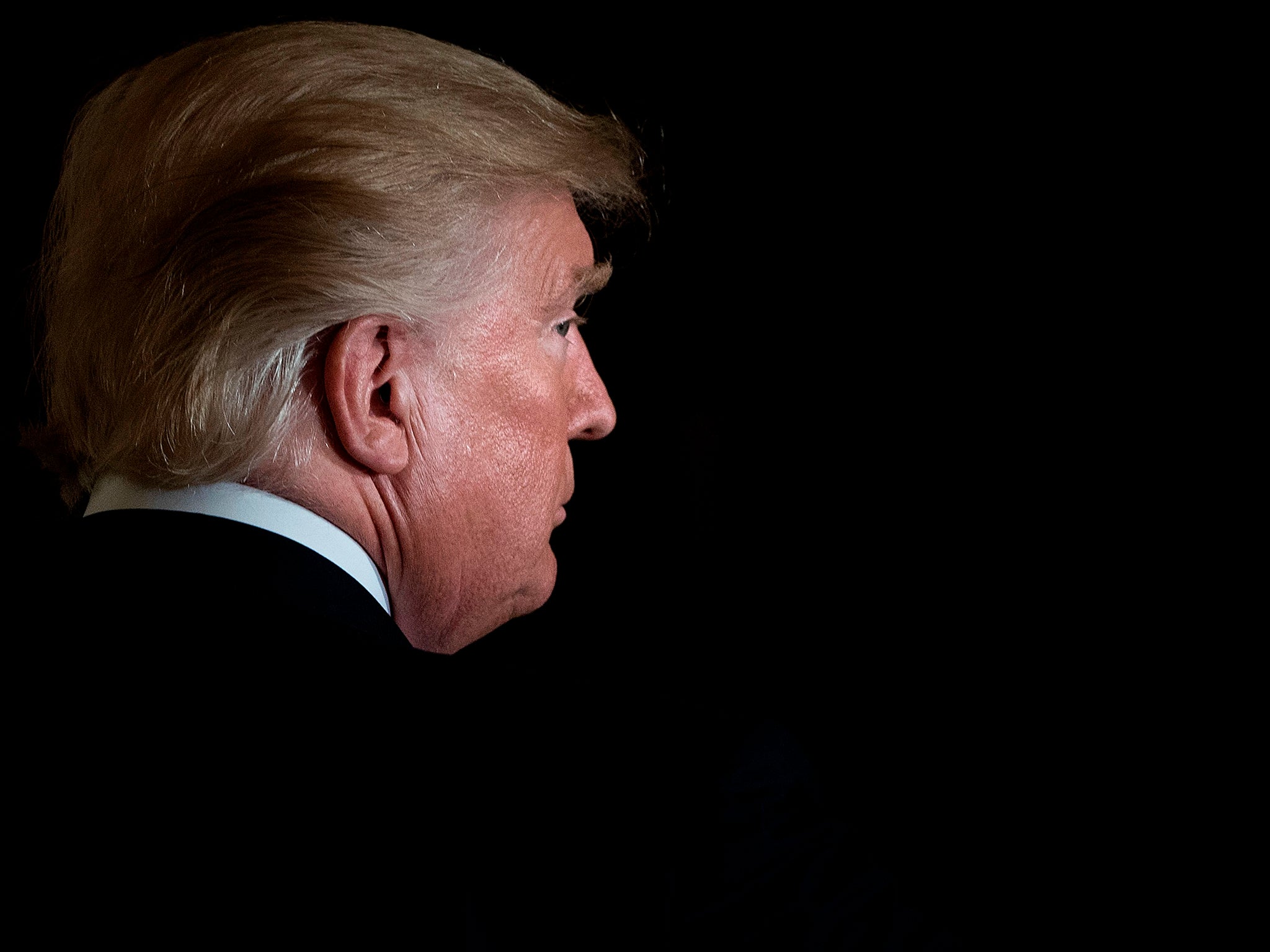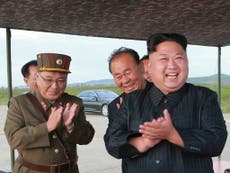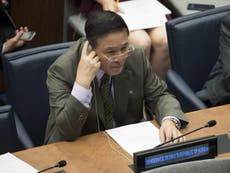The Independent's journalism is supported by our readers. When you purchase through links on our site, we may earn commission.
The US and North Korea are stumbling into a second Cold War, whether they want to or not
During the Cuban Missile Crisis, Nikita Krushchev warned Kennedy not to pull too hard on the knot of war because 'a moment may come when that knot will be tied so tight that even he who tied it will not have the strength to untie it'

Could a nuclear war between the United States and North Korea actually break out? As comforting as it is to think that responsible decision-makers could never allow this to happen, history suggests this might not be case.
At the height of the Cuban Missile Crisis, Nikita Krushchev reached out to Kennedy urging him not to pull too hard on the knot of war, “because the more the two of us pull, the tighter that knot will be tied. And a moment may come when that knot will be tied so tight that even he who tied it will not have the strength to untie it, and then it will be necessary to cut that knot, and what that would mean is not for me to explain to you.” How is possible that leaders can lose control like this?
We often use passive language when discussing political conflicts. We talk about crises “escalating” or wars “breaking out” as if these were afflictions that struck humanity unawares, rather than consequences of the choices made by leaders. However, it is somewhat more unsettling when we see people at the centre of these conflicts – like Secretary Krushchev and President Kennedy – use similar language. How is it possible that the leaders of the states embroiled in crises feel like they are not control of the events they are causing? What does this tell us about the likelihood that the crisis between the US and North Korea will spiral “out of control”?
In some ways, we should not worry about a war breaking out between North Korea and the US, or at least not a nuclear war. Nuclear weapons are incredibly dangerous but the payoffs for their use in almost any circumstances are extremely low. Indeed, precisely because nuclear weapons are so destructive any threat of their use is inherently unbelievable. For instance, whether they strike first or second, in an exchange with the US, North Korea would be doomed. And even if they would not be completely annihilated by a North Korean attack, the US would suffer an irreversible blow. When it is put like this, it seems like we need not worry about the bluster and bullying going on between Kim Jong-un and President Trump; it is neither rational nor credible that they would go to war.
The problem is that it is rational for states to escalate crises enough that they tip into war, and that such a threat is credible precisely because leaders may not be in full control of the dynamics that could allow this to happen. Even though there are extreme potential costs to engaging in the kind of high-stakes bargaining we are currently witnessing between the US and North Korea, there are also considerable potential payoffs for the side that prevails over the other.
In this sense, the crisis resembles a game of chicken. In this classic 1950s game, two drivers speed toward one another as fast as they can with the understanding that whoever swerves first must forfeit their car to the other. The danger here is obvious: if the drivers fail to swerve in time then both drivers will collide and be shorn not only of their cars, but also their lives. Yet despite these risks, the temptation to stay in the game is apparent. After all, maybe the other guy will “swerve” first. This risky logic informed the decision-making of the US in the Cuban Missile Crisis, in which the USSR “swerved first”.
From this perspective, the escalation of the crisis between North Korea and the US can be seen not as the preliminaries to a shooting war, but rather a game of nerves where each stage of escalation is intended to communicate each sides’ resolve not to swerve. One way to credibly communicate this resolve is by making it appear that “swerving” is no longer an option. For instance, Kim publicly calling Trump a “dotard” may not just be an act of lashing out; it also makes it difficult for him to back down without enraging hardliners at home (a not inconsequential danger in regime where political successions are a lethal business).
Similarly, Trump’s hardline attitude may be motivated by a desire to look tough in front a domestic public that supports a militant stance toward North Korea. The threat of suffering domestic costs makes either leader less likely to swerve, thus putting the onus on their opponent to swerve first. The danger is that by escalating like this it makes the costs of backing down more severe, and increases the likelihood that – while waiting for the one another to do the “sensible” thing – the opponents will plough into one another.
As worrying as this process is, it still presumes that leaders are in control of the decision-making process and can change course at the last moment. Yet the most credible way to communicate resolve is to remove that presumption by introducing genuine randomness into the dynamic – a process that the Nobel-winning political scientist Thomas Schelling called “brinkmanship”. Imagine the following scenario: you and a friend are both rowing a boat across a pond when she suddenly refuses to row any longer and demands that you take over. Failure to comply, she warns, will result in her immediately capsizing the boat. Like the threat of mutual nuclear attacks, this threat is, on its face, unbelievable. However, if she stood up and proceeded to rock the boat until you promised to concede, her threat would suddenly become much more credible. Here it is not her words that would convince you, but rather the understanding that – through chance alone – the boat might tip, even though neither of you would want it to.
This logic of brinkmanship is currently in operation when we see US B1 bombers flying near North Korea, or when we hear North Korea claim they will fire on them. Perhaps a US plane – by sheer accident – will crash while carrying an armed warhead. Perhaps an especially zealous local North Korean commander will order an attack on US planes, or an artillery strike on US forces in the DMZ. If events like these were to occur in the charged atmosphere of an escalating crisis, the US or North Korea might not interpret such them as accidents, but rather as the first shots of an actual war, and move immediately to full deployment of their nuclear forces. Without either side wanting it, they could “stumble” into war.
Indeed, there may be an even greater danger. The dynamics outlined above assume that both antagonists in a dispute are rational. However, there is a real risk that either (or both) Trump and Kim may not be fully cognizant of the risks they are running, or the nature of their opponent. Both seem possessed of a machismo in which not only do they not wish to yield, but they wish to deny their opponent to climb down while also saving face. This is extremely dangerous; allowing Krushchev to back down without humiliating him was key in ending the Cuban Missile Crisis. This is very unnerving because if a person cares more about saving their face than saving their life, they may never choose to swerve. In such a situation, escalation can only end in one way.
David Banks is a professorial lecturer at American University, Washington where he focuses on international order, great power politics, and diplomacy




Join our commenting forum
Join thought-provoking conversations, follow other Independent readers and see their replies